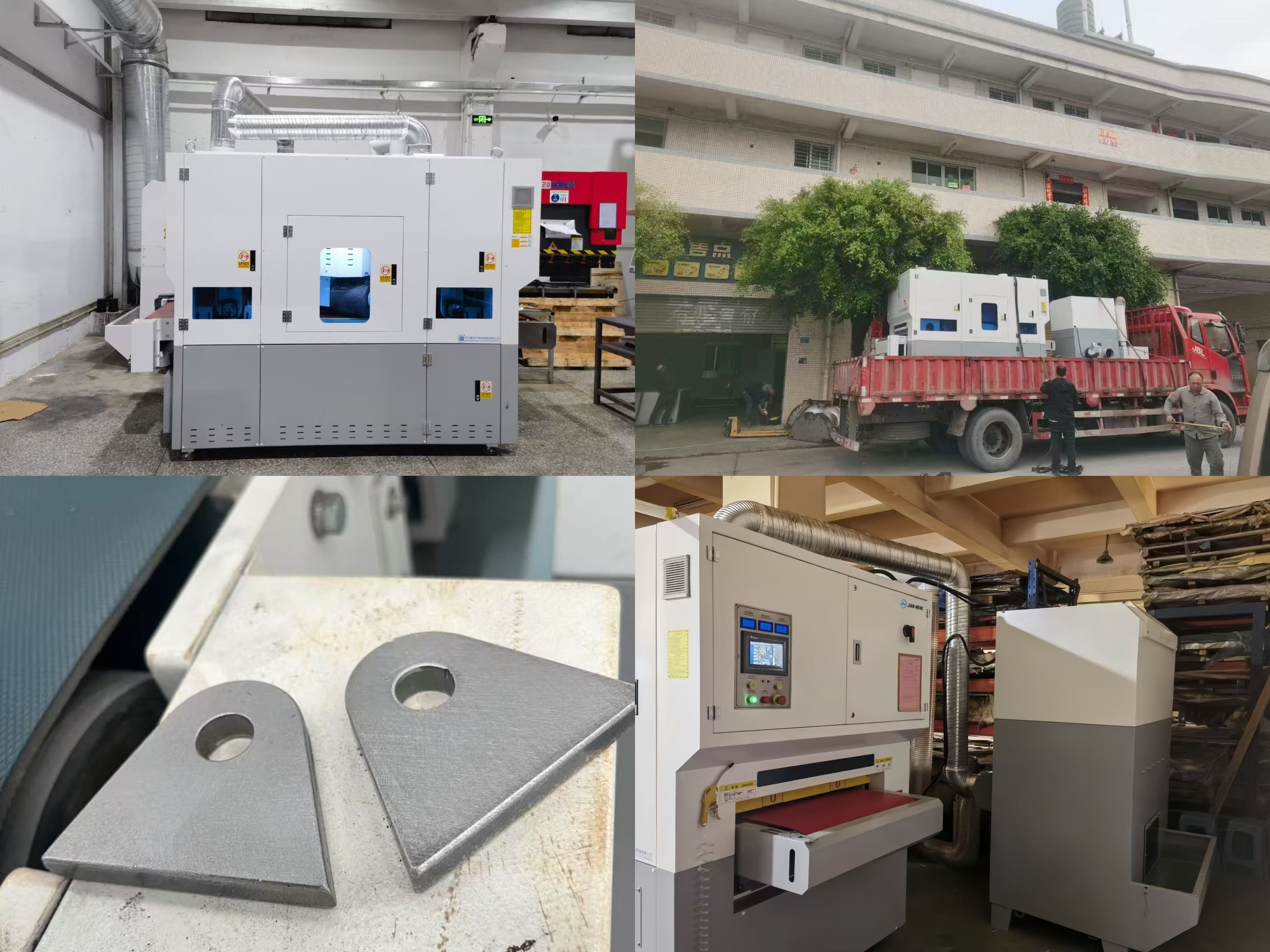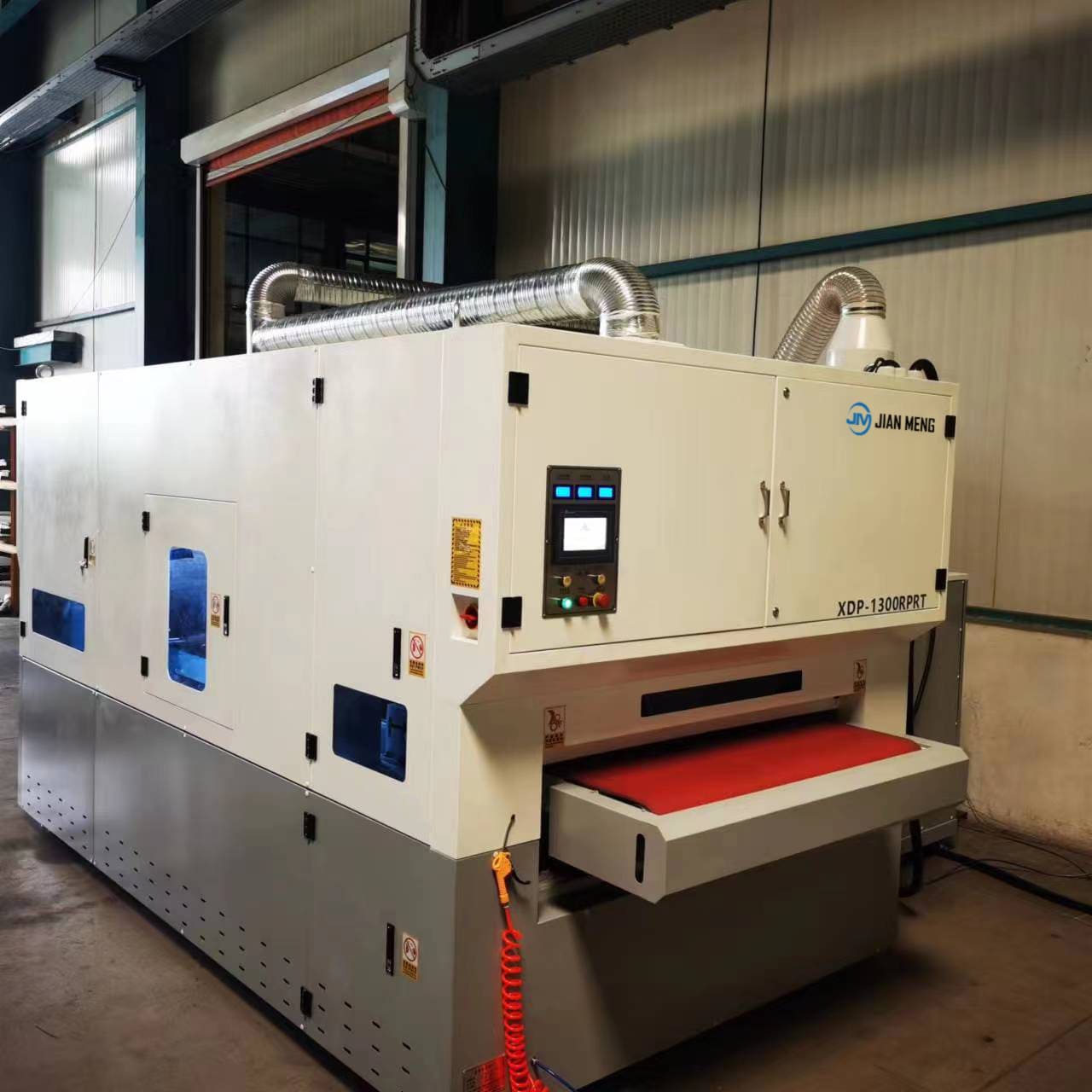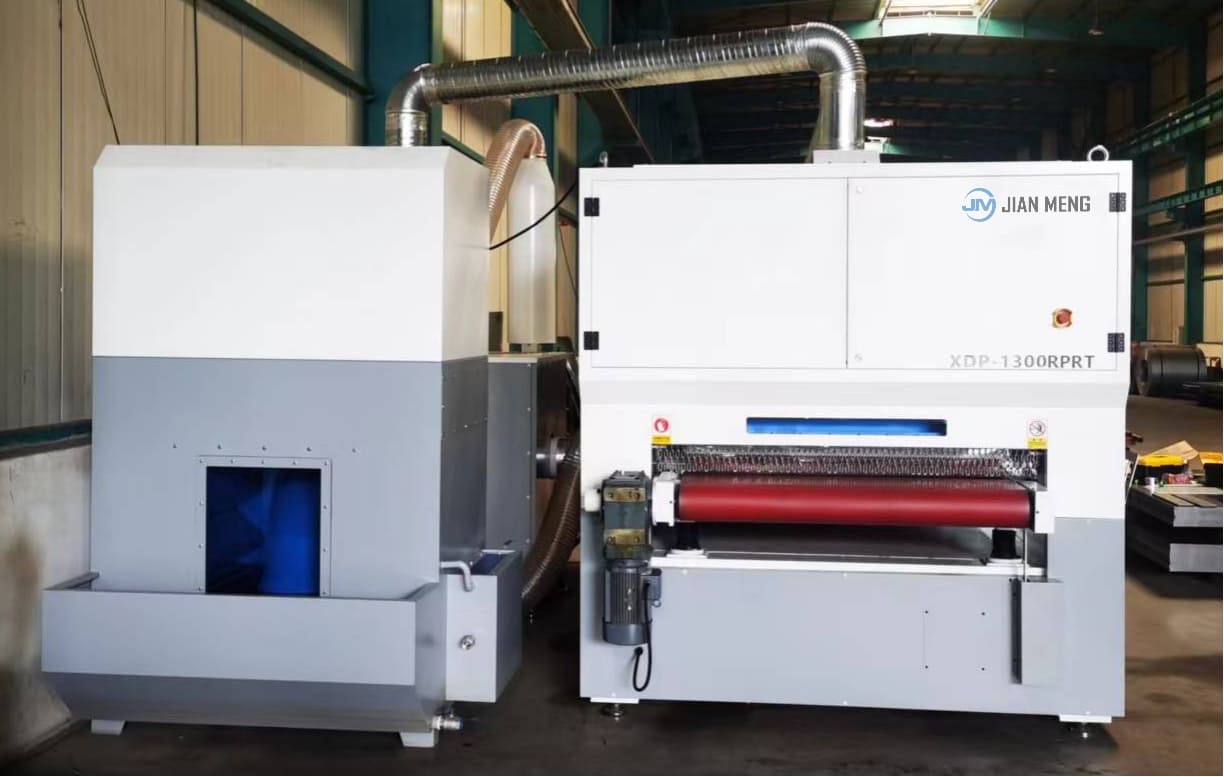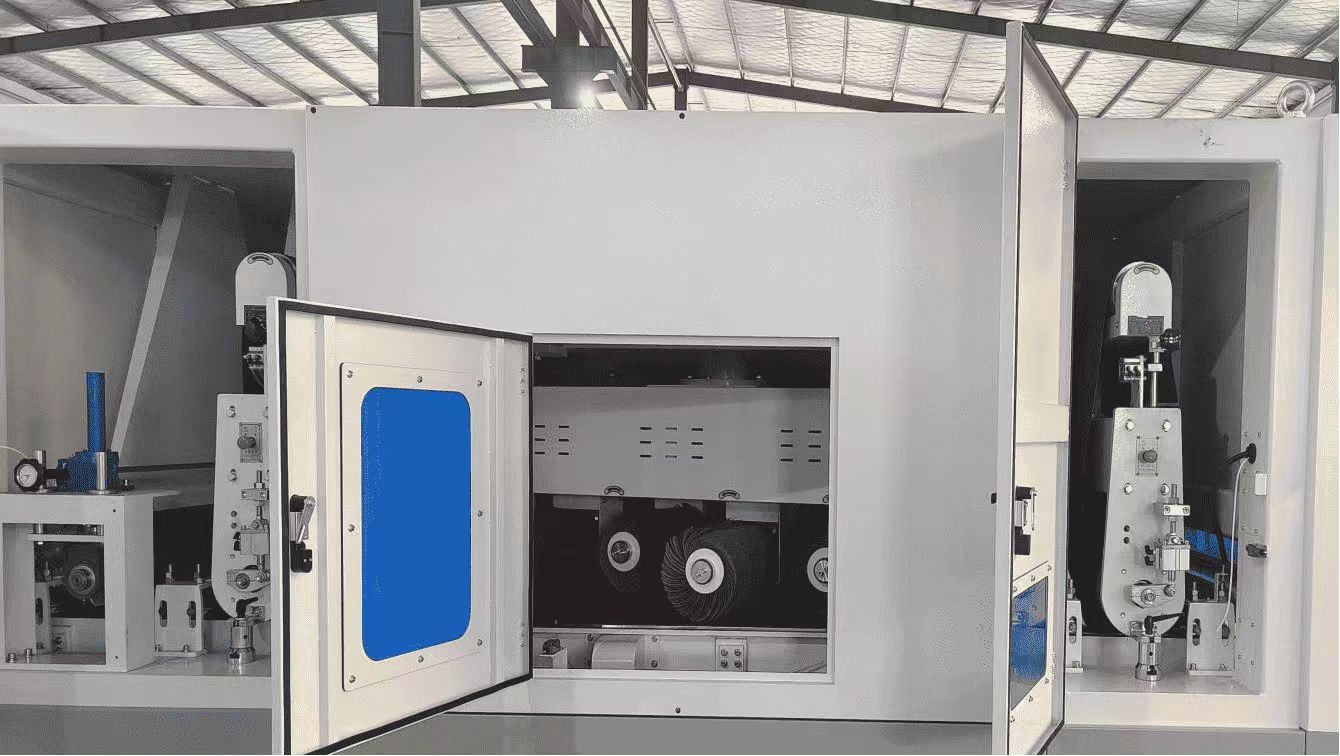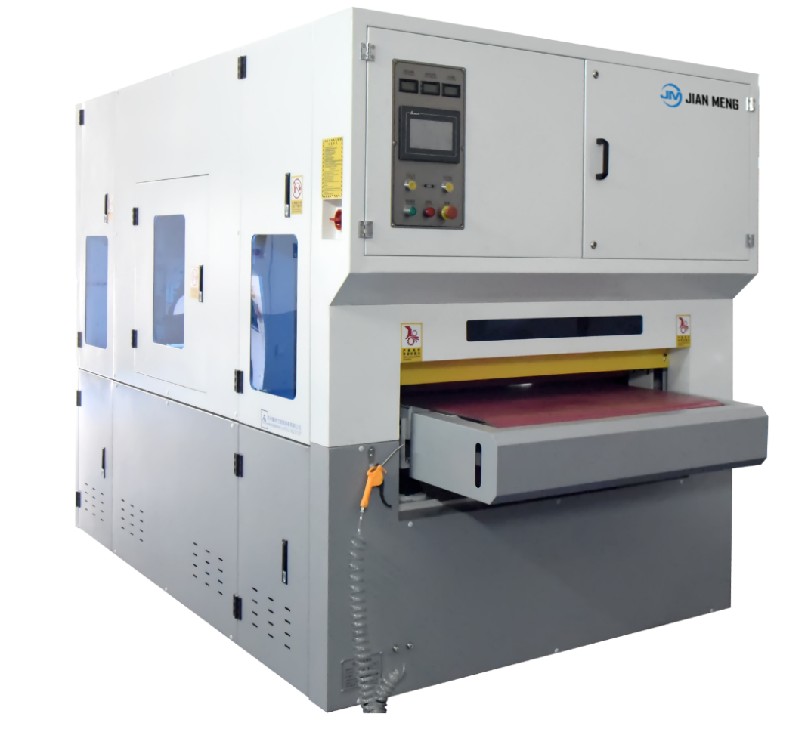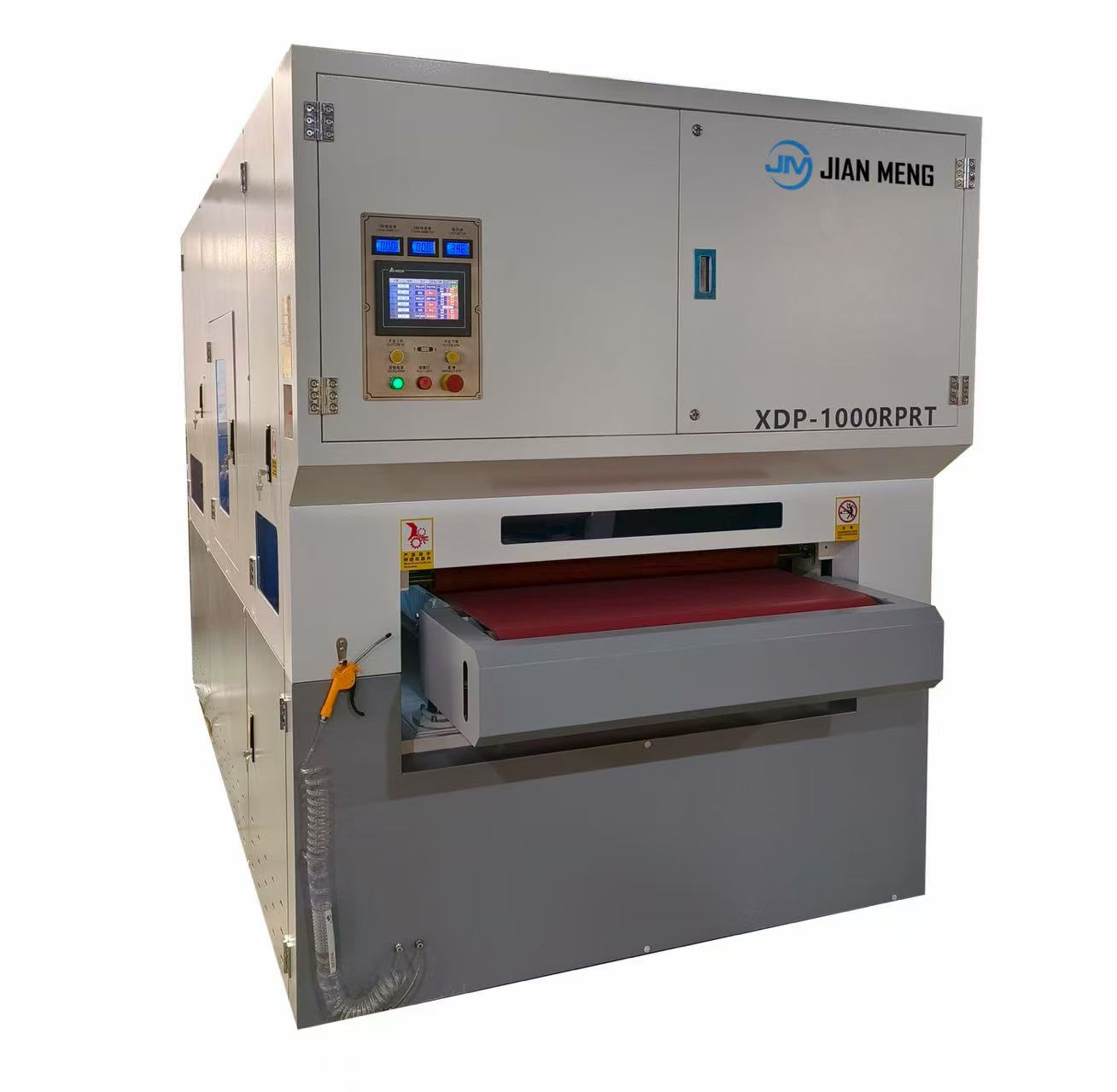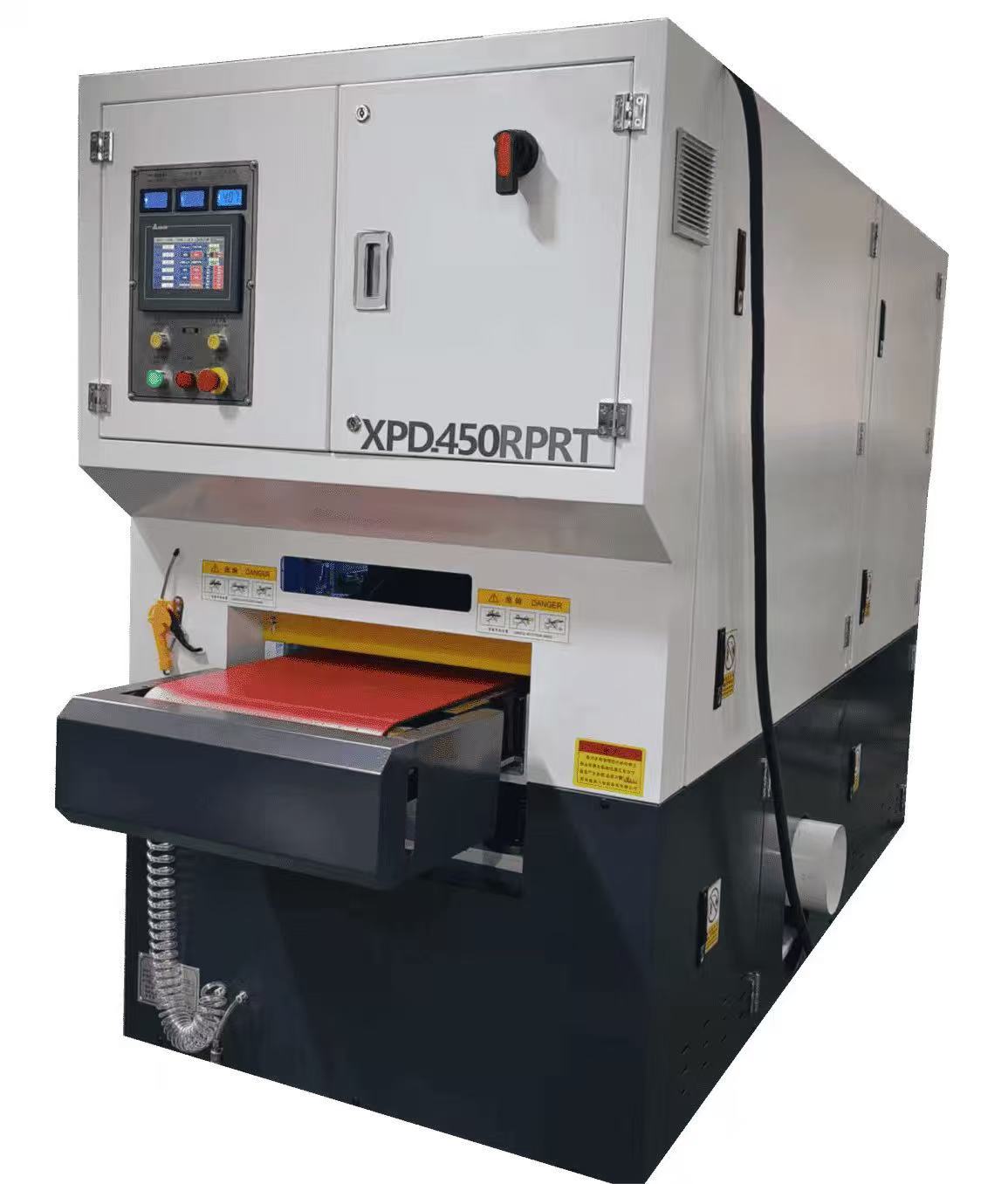- Horizontal V Grooving Machine
- Vertical V Grooving Machine
- Automatic Four Side V Grooving Machine
- V Grooving Machine Accessory
- Metal Forming Machine
- Deburring Machine
- Thin Sheet Deburring Machine
- Abrasive Belt Deburring Machine
- Carbon Steel Deburring Machine
- Deburring and Brushing Machine
- Manual Deburring Machine
- Wet Dust Collector
- Deburring Polishing & Brushing Machine
- Deburring & Chamfering Machine
- Wet Deburring & Brushing Machine
- Deburring, Edge rounding & Polishing Machine
- Carbon Steel Deburring & Brushing & Edge rounding Machine
- Dry Deburring, Brushing, and Polishing Machine
- Deburring and Brushing Machine with Slag Hammer Disc
- Shearing Machine
- Press Brake
Deburring Polishing & Brushing Machine for metal sheet
JM is a leading manufacturer dedicated to developing and producing advanced deburring, polishing, and brushing equipment that meets the highest standards of modern metal surface processing. This efficient and intelligent machine integrates deburring, polishing, oxide removal, chamfering, and surface brushing in one process. Widely used in sheet metal fabrication, automotive parts, and precision instruments, the Industrial Deburring Machine effectively removes burrs, sharp edges, and defects from stainless steel, carbon steel, aluminum, and copper, ensuring smooth and safe edges. Designed for high efficiency, stability, and smart operation, Automatic Deburring Machine enhances workpiece quality, improves consistency, and boosts production speed—providing manufacturers with a reliable, all-in-one surface treatment solution. For superior product quality and streamlined processing, JM’s equipment is the top choice for metalworking enterprises.
Model:XDP-1300RPRT
Send Inquiry
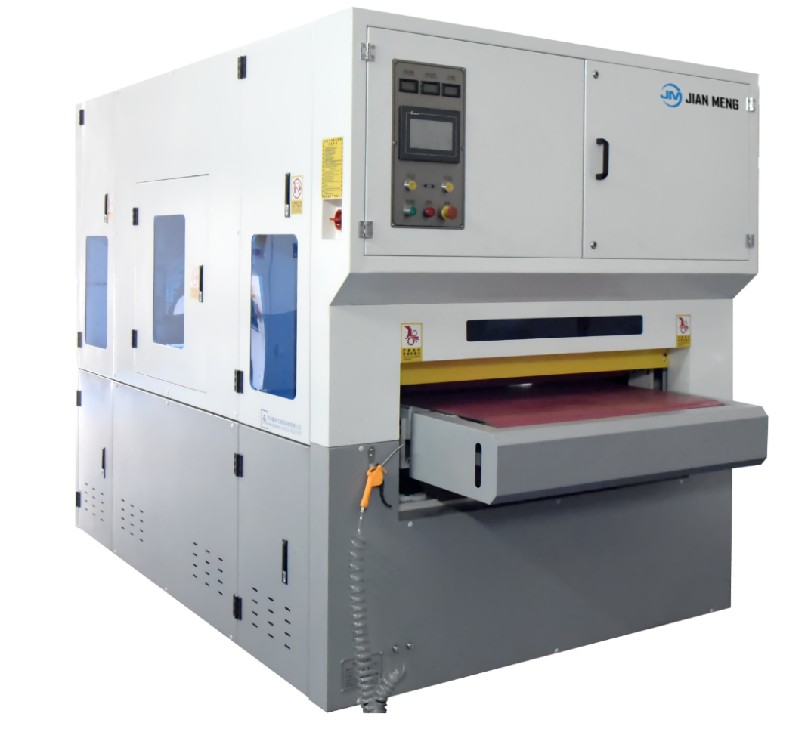 \
\
Deburring Machines
Perfect Deburring: The XDP-1300RPRT Deburring, Polishing & Brushing Machine delivers precise edge finishing for metal parts, sheets, and plates by efficiently removing burrs and sharp edges formed during production, resulting in smooth, safe, and high-quality surfaces. Beyond edge processing, it also removes oxide layers and heat-affected zones caused by welding, greatly enhancing the bonding strength of coatings and paints. With its comprehensive surface treatment capabilities, this machine is an indispensable solution for improving both the visual appeal and functional performance of metal components in a wide range of industries.
Main configuration list
PCL touch screen(7-inch): Delta
Abrasive belt motor(18.5kW): Huarui
Roller brush self-rotation motor(4kw): Huarui
Roller brush orbital motor (2.2kW):Jinwanshun
Vacuum suction fan (18.5kW):Jiuzhou Puhui
Wet dust collector motor (5.5kW):Jiuzhou Puhui
Control buttons:Schneider (France)
Solenoid valve:Airtac
Pneumatic components:Mobang
CNC Display Screen
The CNC display screen of the deburring machine is a key component of the equipment, responsible for centrally displaying and controlling all operation parameters during the deburring process, improving processing efficiency and precision. The CNC display not only provides real-time feedback but also allows the operator to make precise parameter adjustments according to the needs, ensuring the quality of the workpiece.
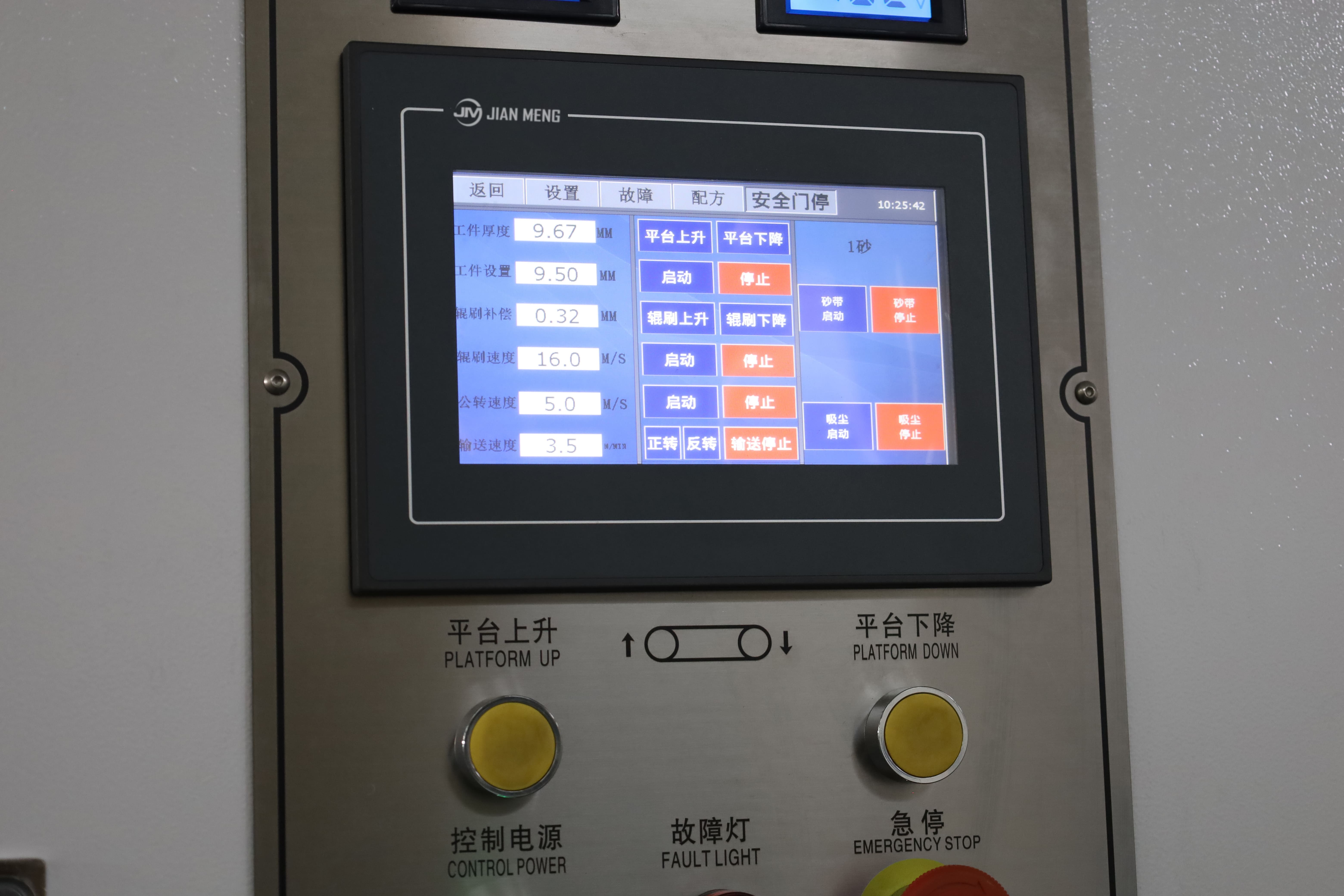
Internal Structure
The internal structure of the 1000RPRT consists of one set of abrasive belts +eight roller brushes + one set of abrasive belts + one polishing roller, forming a four-stage processing system. The first abrasive belt is used for the initial removal of burrs from the workpiece surface; the second stage with eight roller brushes performs brushing treatment, ensuring thorough deburring without damaging the surface; the second set of abrasive belts provides further fine grinding to improve surface flatness; and finally, the polishing roller carries out precision polishing, making the surface smooth, uniform, and visually refined. With its well-designed structure, the Metal Finishing Machine enables efficient, stable, and continuous surface treatment.
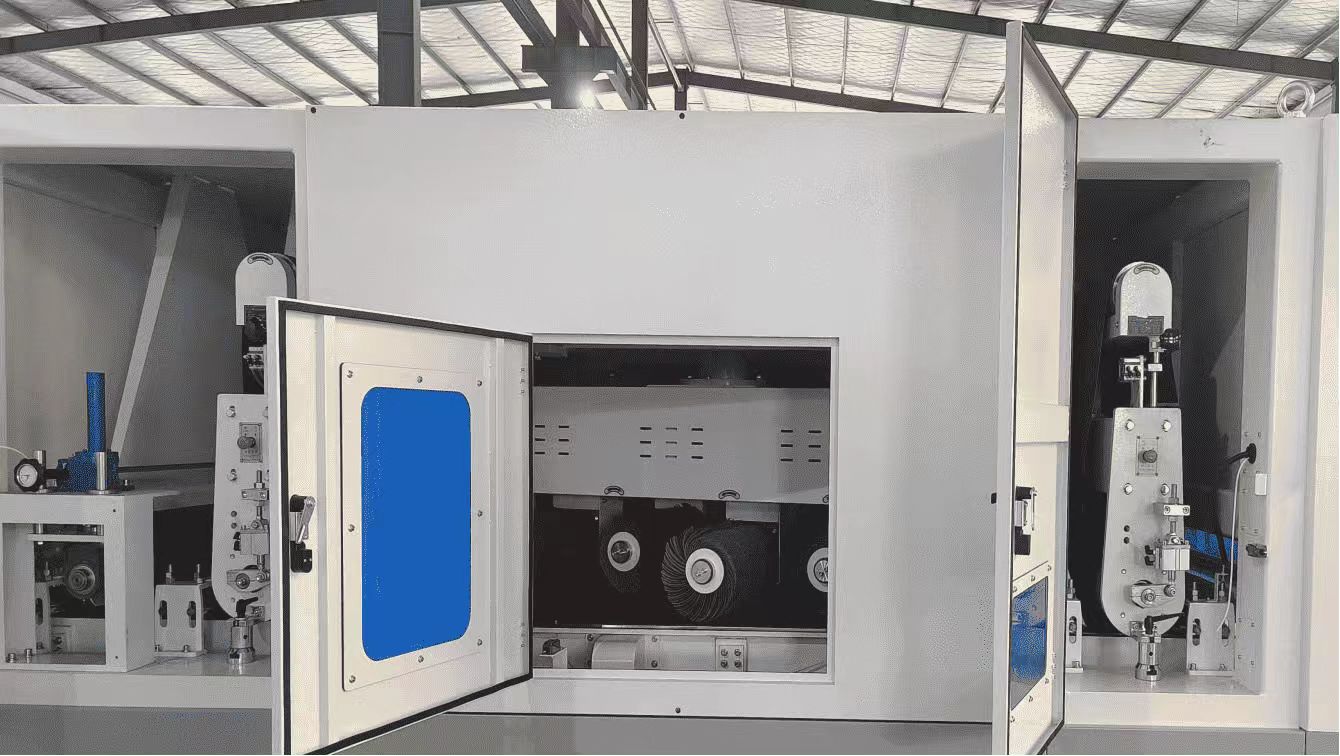
Consumables
Abrasive Belt
Abrasive belts are widely used as abrasive tools for metal surface treatment. After undergoing special processing, they are formed into a belt structure, suitable for various tasks such as grinding, deburring, polishing, finishing, and wire drawing. The abrasive belt removes excess material through friction with the workpiece surface, improving the surface quality and appearance of the workpiece.
Roller brushes
The roller brush is an efficient tool used in metal processing and surface treatment, widely applied in deburring, surface brushing, cleaning, and removing oxide layers and oil stains. Its working principle is to make contact between the rotating bristles and the workpiece surface, achieving deburring, chamfering, and surface finishing.
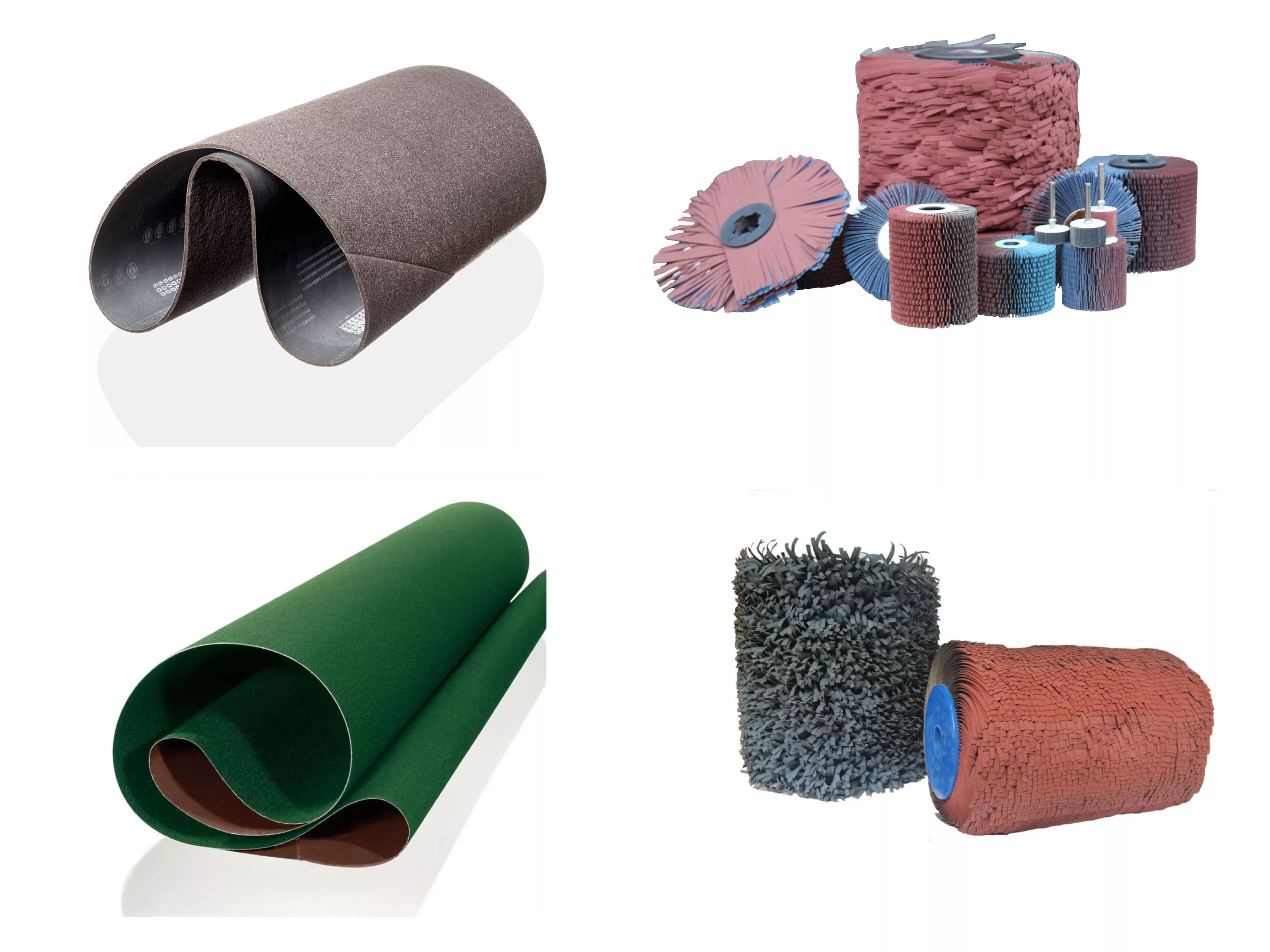
Comparison of Before and After Deburring
Before deburring:
Workpieces often exhibit burrs, sharp edges, or protruding fins as a result of cutting, stamping, milling, sawing, or drilling. These imperfections can be accompanied by surface oxides, welding slag, oil stains, or other contaminants. Such defects not only compromise the surface quality but may also interfere with subsequent processing steps like coating, welding, or assembly.
After Deburring:
Following the deburring process, the workpiece surface becomes smooth, clean, and free of burrs and sharp edges. All irregular projections and sharp corners generated during manufacturing are effectively removed. Edges are more uniform and rounded, minimizing the risk of injury, reducing wear on tooling, and ensuring better performance and compatibility in downstream operations.
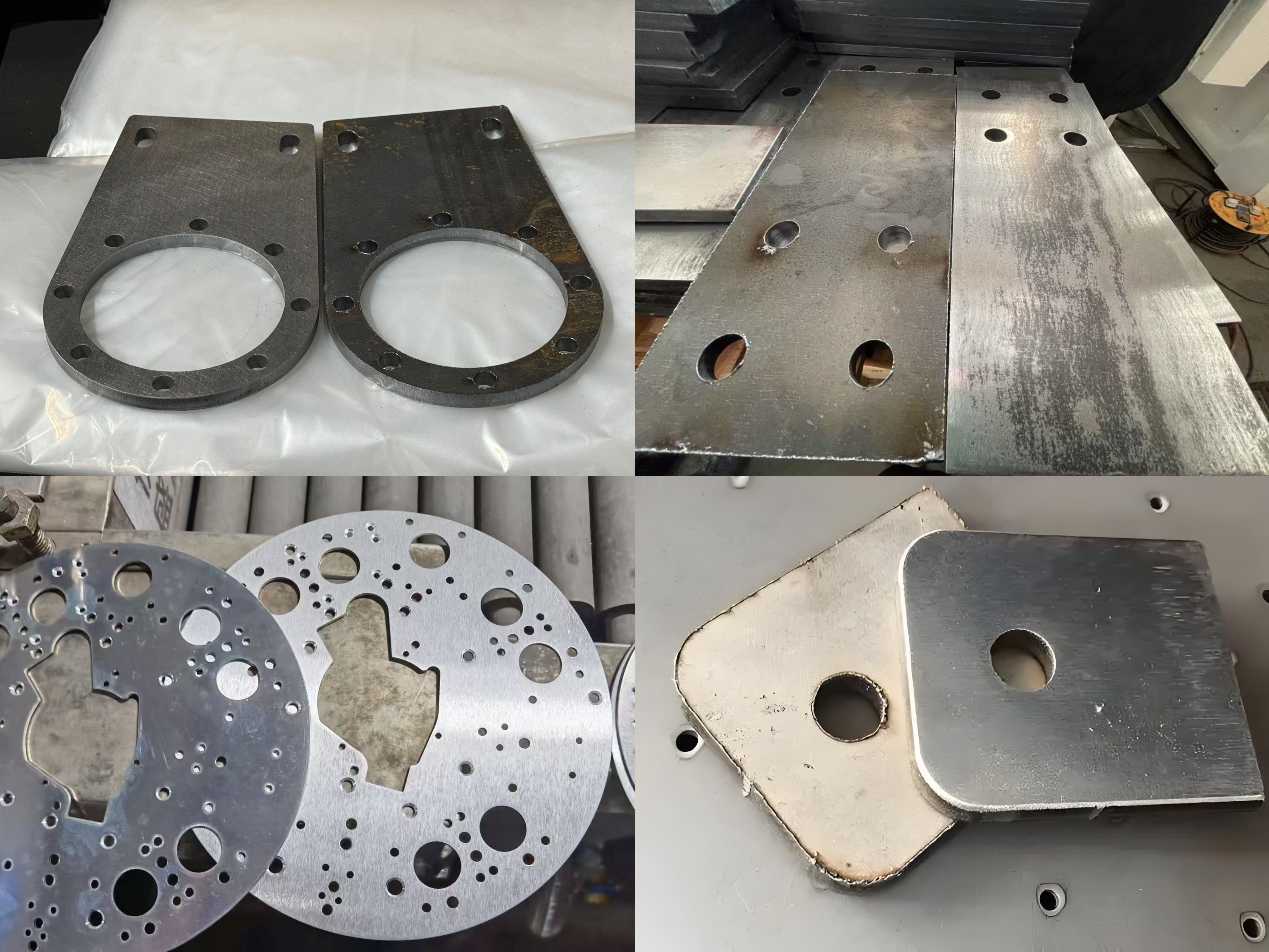
XDP-1300RPRT Machine Parameter
1300mm
Worktable width
Maximum load capacity
300kg
Processing thickness
1-90mm
Minimum processing size
(non-perforated plate) 50*50*0.5mm
Abrasive belt size
2200*1320mm
Polishing roller size
Φ250*1320mm
Roller brush size
300*400*40mm
Clients’ Deburring Cases
A leading manufacturer specializing in stainless steel components faced challenges with inconsistent edge finishing, low processing efficiency, and poor surface preparation that affected coating and paint adhesion. After adopting the JM Deburring Polishing & Brushing Machine, the company experienced a significant increase in production efficiency, enhanced edge consistency, and improved surface quality—particularly in removing weld oxidation and heat-affected zones. The intelligent, automated system also reduced manual labor and improved overall process stability.
